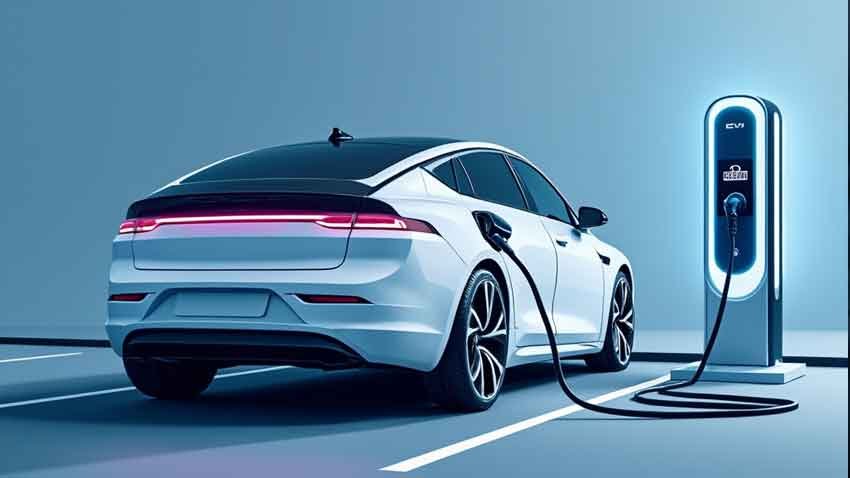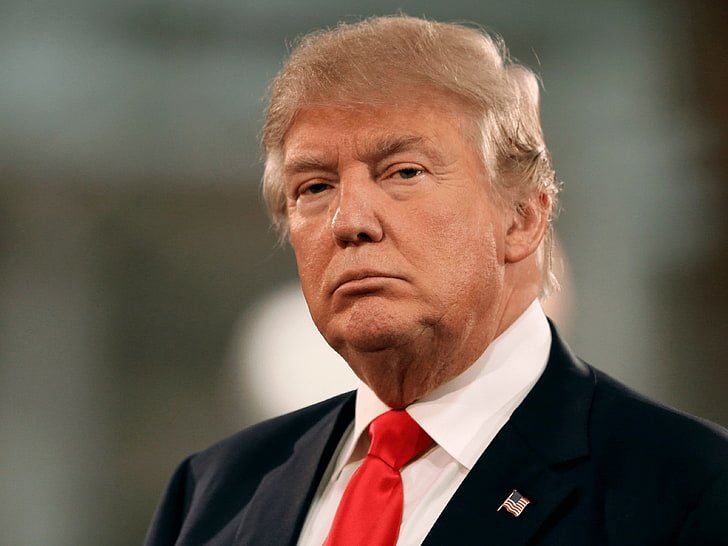Pakistan’s National Electric Vehicle Policy: A Bold Step Towards Clean Mobility
The government of Pakistan, under the leadership of Prime Minister Shehbaz Sharif, has unveiled a groundbreaking initiative aimed at transforming the country’s transportation sector. The newly launched National Electric Vehicle (NEV) Policy introduces a massive Rs. 9 billion subsidy to encourage the adoption of eco-friendly vehicles and promote sustainable development. This ambitious policy forms part of a broader strategy to modernize Pakistan’s transport infrastructure, reduce harmful emissions, and decrease dependence on imported fuels.
A Vision for a Greener Future
Pakistan has long faced challenges related to air pollution, rising fuel imports, and the environmental impact of conventional vehicles. With smog choking major cities like Lahore, Karachi, and Islamabad during the winter months, the need for cleaner, greener alternatives has become urgent. The NEV Policy reflects the government’s recognition of this pressing issue and its determination to address it through bold action.
Prime Minister Sharif described the policy as a “milestone in Pakistan’s journey towards environmental sustainability and technological progress.” He emphasized that modern transportation solutions are essential for building smart cities and securing the health of future generations.
The Rs. 9 Billion Subsidy: A Game Changer
Central to the NEV Policy is the announcement of a Rs. 9 billion subsidy designed to make electric vehicles (EVs) more affordable for the average citizen. This funding will directly reduce the cost of electric two-wheelers, three-wheelers, and small four-wheelers, putting clean transport within the reach of students, delivery workers, families, and daily commuters.
By offering direct financial assistance, the government hopes to create a strong incentive for people to choose electric over petrol- and diesel-powered vehicles. The subsidy scheme covers both new purchases and conversions of existing vehicles, providing flexibility for consumers.
Digital Application Process: Ensuring Transparency
A key highlight of the program is the commitment to transparency and efficiency. To make the process smooth, fair, and accessible, the government is launching a fully digital application platform. This online system will allow applicants to register, submit required documents, and track the progress of their applications in real time.
This digital-first approach reflects the government’s broader vision for a tech-driven future. By reducing bureaucratic hurdles and eliminating middlemen, the platform will ensure that subsidies are distributed fairly and without delay. Applicants from remote areas, who might previously have struggled with paperwork or travel to government offices, will benefit the most from this system.
A Total Subsidy Pool of Over Rs. 100 Billion
While the initial Rs. 9 billion subsidy has attracted significant attention, it is only part of a much larger financial commitment. The overall NEV Policy provides for more than Rs. 100 billion in total subsidies and incentives. These funds will support a range of activities, including the development of EV charging infrastructure, local manufacturing of EV components, and research and development in the field of green technology.
By making such a large investment, Pakistan signals to the world that it is serious about its climate commitments and determined to modernize its economy in line with global trends.
Empowering Women Through Green Mobility
One of the most progressive aspects of the NEV Policy is the decision to reserve 25 percent of subsidies for women. This bold step is designed to encourage greater female participation in the transport sector and support women in accessing safe, reliable, and affordable mobility solutions.
In Pakistan, where women often face barriers to independent travel, this initiative could be transformative. By making electric scooters and small cars more affordable for women, the government aims to empower them in both economic and social spheres.
Pakistan’s National Electric Vehicle Policy: A Bold Step Towards Clean Mobility
The government of Pakistan, under the leadership of Prime Minister Shehbaz Sharif, has unveiled a groundbreaking initiative aimed at transforming the country’s transportation sector. The newly launched National Electric Vehicle (NEV) Policy introduces a massive Rs. 9 billion subsidy to encourage the adoption of eco-friendly vehicles and promote sustainable development. This ambitious policy forms part of a broader strategy to modernize Pakistan’s transport infrastructure, reduce harmful emissions, and decrease dependence on imported fuels.
A Vision for a Greener Future
Pakistan has long faced challenges related to air pollution, rising fuel imports, and the environmental impact of conventional vehicles. With smog choking major cities like Lahore, Karachi, and Islamabad during the winter months, the need for cleaner, greener alternatives has become urgent. The NEV Policy reflects the government’s recognition of this pressing issue and its determination to address it through bold action.
Prime Minister Sharif described the policy as a “milestone in Pakistan’s journey towards environmental sustainability and technological progress.” He emphasized that modern transportation solutions are essential for building smart cities and securing the health of future generations.
The Rs. 9 Billion Subsidy: A Game Changer
Central to the NEV Policy is the announcement of a Rs. 9 billion subsidy designed to make electric vehicles (EVs) more affordable for the average citizen. This funding will directly reduce the cost of electric two-wheelers, three-wheelers, and small four-wheelers, putting clean transport within the reach of students, delivery workers, families, and daily commuters.
By offering direct financial assistance, the government hopes to create a strong incentive for people to choose electric over petrol- and diesel-powered vehicles. The subsidy scheme covers both new purchases and conversions of existing vehicles, providing flexibility for consumers.
Digital Application Process: Ensuring Transparency
A key highlight of the program is the commitment to transparency and efficiency. To make the process smooth, fair, and accessible, the government is launching a fully digital application platform. This online system will allow applicants to register, submit required documents, and track the progress of their applications in real time.
This digital-first approach reflects the government’s broader vision for a tech-driven future. By reducing bureaucratic hurdles and eliminating middlemen, the platform will ensure that subsidies are distributed fairly and without delay. Applicants from remote areas, who might previously have struggled with paperwork or travel to government offices, will benefit the most from this system.
A Total Subsidy Pool of Over Rs. 100 Billion
While the initial Rs. 9 billion subsidy has attracted significant attention, it is only part of a much larger financial commitment. The overall NEV Policy provides for more than Rs. 100 billion in total subsidies and incentives. These funds will support a range of activities, including the development of EV charging infrastructure, local manufacturing of EV components, and research and development in the field of green technology.
By making such a large investment, Pakistan signals to the world that it is serious about its climate commitments and determined to modernize its economy in line with global trends.
Empowering Women Through Green Mobility
One of the most progressive aspects of the NEV Policy is the decision to reserve 25 percent of subsidies for women. This bold step is designed to encourage greater female participation in the transport sector and support women in accessing safe, reliable, and affordable mobility solutions.
In Pakistan, where women often face barriers to independent travel, this initiative could be transformative. By making electric scooters and small cars more affordable for women, the government aims to empower them in both economic and social spheres.
Officials noted that this allocation would also help working women, students, and female entrepreneurs who rely on transport for their livelihoods.
Heavy Rainfall and Hail Storms Expected in these Cites of Pakistan
Raed This Artial
NEV Adoption Levy: A Push Away from Fossil Fuels
Alongside incentives for electric vehicles, the policy introduces a new NEV Adoption Levy on petrol and diesel vehicles. The levy is designed to discourage the continued use of fuel-based cars and bikes by gradually making them less economically attractive.
Revenue collected from this levy will be reinvested into the NEV program, funding further subsidies, charging stations, and public awareness campaigns. The measure is expected to shift consumer behavior over time, as people increasingly look for cleaner, cheaper alternatives.
Environmental and Economic Benefits
The benefits of the NEV Policy extend beyond cleaner air. By promoting electric vehicles, Pakistan stands to reduce its dependence on imported fuels, easing pressure on the national budget and strengthening energy security. Every liter of petrol saved represents valuable foreign exchange that can be used for other critical needs.
Environmental experts have hailed the policy as a vital step in combating climate change. With transport accounting for a significant share of Pakistan’s greenhouse gas emissions, the transition to electric vehicles could help the country meet its commitments under international climate agreements.
The government also expects the policy to boost job creation in emerging sectors. From EV assembly plants to battery production and charging infrastructure, new industries will require skilled workers, providing employment opportunities for thousands.
Support for Students, Riders, and Daily Commuters
The NEV Policy is designed with ordinary citizens in mind. Students who rely on affordable two-wheelers, delivery riders who spend long hours on the road, and daily commuters navigating busy city streets all stand to benefit from the new subsidies.
By lowering the upfront cost of electric vehicles, the policy ensures that clean transport is not just a luxury for the wealthy, but a practical choice for the masses. The government has stressed that the initiative is about inclusivity and equitable access to modern technology.
Building Charging Infrastructure
A shift to electric mobility requires the right infrastructure. The government has announced plans to expand EV charging networks across Pakistan, starting with major urban centers and key highways. This network will be crucial in giving people the confidence to switch to electric, knowing that they will have reliable places to charge their vehicles.
Public-private partnerships are expected to play a key role in building and operating these stations, ensuring that growth is both rapid and sustainable. Vehicles
International Best Practices
The NEV Policy draws inspiration from successful models in countries like China, Norway, and the United Kingdom. These nations have demonstrated that with the right mix of incentives and infrastructure investment, it is possible to achieve significant shifts in transport patterns. Vehicles
Pakistani officials have consulted with international experts and studied case studies to avoid common pitfalls and tailor solutions to local conditions .Vehicles
A Long-Term Vision
The NEV Policy is not just a short-term measure. It forms part of a 10-year roadmap aimed at transforming Pakistan’s transport sector. Targets include:v
-
30% of all new vehicle sales being electric by 2035Vehicles
-
VehiclesSignificant reductions in urban air pollution
-
A fully integrated charging network in all major citiesVehicles
-
Local manufacturing of batteries and EV components
Challenges Ahead
While the policy is ambitious, it is not without challenges. Industry experts point out that success will depend on:
-
Building charging infrastructure quickly enough to support rising EV numbers
-
Ensuring a stable supply of EV parts and batteries
-
Addressing potential resistance from traditional auto industry stakeholders
-
Managing the impact of the NEV Adoption Levy on lower-income petrol vehicle owners
The government has pledged to monitor the program closely and make adjustments as needed.
Public Reaction
The public response to the NEV Policy has been largely positive. Environmental groups, women’s rights organizations, and technology advocates have praised the move. Social media users have welcomed the focus on clean transport, though some have raised questions about how quickly the policy will be implemented. Vehicles
Auto industry representatives have expressed cautious optimism, highlighting the need for clear guidelines and consistent suppor Vehiclest.
Conclusion: A Bold Step Towards Clean Mobility
Pakistan’s National Electric Vehicle Policy represents a major step forward in the country’s efforts to modernize its transport sector and embrace sustainable development. With substantial subsidies, a focus on inclusivity, and a clear plan for infrastructure development, the policy has the potential to change how millions of Pakistanis move through their cities every day.
Building Charging Infrastructure
A shift to electric mobility requires the right infrastructure. The government has announced plans to expand EV charging networks across Pakistan, starting with major urban centers and key highways. This network will be crucial in giving people the confidence to switch to electric, knowing that they will have reliable places to charge their vehicles.
Public-private partnerships are expected to play a key role in building and operating these stations, ensuring that growth is both rapid and sustainable. Vehicles
International Best Practices
The NEV Policy draws inspiration from successful models in countries like China, Norway, and the United Kingdom. These nations have demonstrated that with the right mix of incentives and infrastructure investment, it is possible to achieve significant shifts in transport patterns. Vehicles
Pakistani officials have consulted with international experts and studied case studies to avoid common pitfalls and tailor solutions to local conditions .Vehicles
A Long-Term Vision
The NEV Policy is not just a short-term measure. It forms part of a 10-year roadmap aimed at transforming Pakistan’s transport sector. Targets include:v
-
30% of all new vehicle sales being electric by 2035Vehicles
-
VehiclesSignificant reductions in urban air pollution
-
A fully integrated charging network in all major citiesVehicles
-
Local manufacturing of batteries and EV components
Challenges Ahead
While the policy is ambitious, it is not without challenges. Industry experts point out that success will depend on:
-
Building charging infrastructure quickly enough to support rising EV numbers
-
Ensuring a stable supply of EV parts and batteries
-
Addressing potential resistance from traditional auto industry stakeholders
-
Managing the impact of the NEV Adoption Levy on lower-income petrol vehicle owners
The government has pledged to monitor the program closely and make adjustments as needed.
Public Reaction
The public response to the NEV Policy has been largely positive. Environmental groups, women’s rights organizations, and technology advocates have praised the move. Social media users have welcomed the focus on clean transport, though some have raised questions about how quickly the policy will be implemented. Vehicles
Auto industry representatives have expressed cautious optimism, highlighting the need for clear guidelines and consistent suppor Vehiclest.
Conclusion: A Bold Step Towards Clean Mobility
Pakistan’s National Electric Vehicle Policy represents a major step forward in the country’s efforts to modernize its transport sector and embrace sustainable development. With substantial subsidies, a focus on inclusivity, and a clear plan for infrastructure development, the policy has the potential to change how millions of Pakistanis move through their cities every day.
Building Charging Infrastructure
A shift to electric mobility requires the right infrastructure. The government has announced plans to expand EV charging networks across Pakistan, starting with major urban centers and key highways. This network will be crucial in giving people the confidence to switch to electric, knowing that they will have reliable places to charge their vehicles.
Public-private partnerships are expected to play a key role in building and operating these stations, ensuring that growth is both rapid and sustainable. Vehicles
International Best Practices
The NEV Policy draws inspiration from successful models in countries like China, Norway, and the United Kingdom. These nations have demonstrated that with the right mix of incentives and infrastructure investment, it is possible to achieve significant shifts in transport patterns. Vehicles
Pakistani officials have consulted with international experts and studied case studies to avoid common pitfalls and tailor solutions to local conditions .Vehicles
A Long-Term Vision
The NEV Policy is not just a short-term measure. It forms part of a 10-year roadmap aimed at transforming Pakistan’s transport sector. Targets include:v
-
30% of all new vehicle sales being electric by 2035Vehicles
-
VehiclesSignificant reductions in urban air pollution
-
A fully integrated charging network in all major citiesVehicles
-
Local manufacturing of batteries and EV components
Challenges Ahead
While the policy is ambitious, it is not without challenges. Industry experts point out that success will depend on:
-
Building charging infrastructure quickly enough to support rising EV numbers
-
Ensuring a stable supply of EV parts and batteries
-
Addressing potential resistance from traditional auto industry stakeholders
-
Managing the impact of the NEV Adoption Levy on lower-income petrol vehicle owners
The government has pledged to monitor the program closely and make adjustments as needed.
Public Reaction
The public response to the NEV Policy has been largely positive. Environmental groups, women’s rights organizations, and technology advocates have praised the move. Social media users have welcomed the focus on clean transport, though some have raised questions about how quickly the policy will be implemented. Vehicles
Auto industry representatives have expressed cautious optimism, highlighting the need for clear guidelines and consistent suppor Vehiclest.
Conclusion: A Bold Step Towards Clean Mobility
Pakistan’s National Electric Vehicle Policy represents a major step forward in the country’s efforts to modernize its transport sector and embrace sustainable development. With substantial subsidies, a focus on inclusivity, and a clear plan for infrastructure development, the policy has the potential to change how millions of Pakistanis move through their cities every day.
By reducing reliance on fossil fuels, cutting emissions, and creating new economic opportunities, the NEV Policy positions Pakistan as a serious player in the global clean mobility movement. The coming years will show how effectively this vision can be turned into reality.




